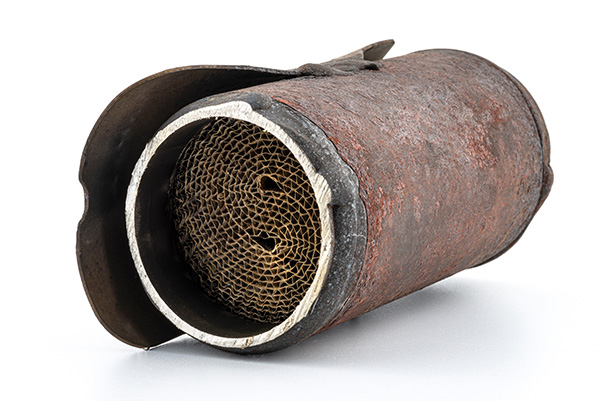
The catalytic converter is an essential component of your vehicle's exhaust system, working tirelessly to reduce harmful emissions. But have you ever wondered how long this part is expected to last? Understanding the typical lifespan of a catalytic converter can help you take better care of your vehicle and avoid unexpected repair costs. Let's examine the catalytic converters and learn about their longevity and maintenance.
The Catalytic Converter
Located in your car's exhaust system, the catalytic converter uses a chemical reaction to transform harmful gasses such as carbon monoxide, hydrocarbons, and nitrogen oxides into less harmful emissions like carbon dioxide and water vapor. This process significantly reduces the pollutants released into the atmosphere, making your car more eco-friendly.
Typical Lifespan of a Catalytic Converter
A catalytic converter is built to be durable, often lasting between 70,000 to 100,000 miles. However, this lifespan can vary based on several factors, including the type of vehicle, driving conditions, and maintenance habits. In some cases, catalytic converters can last the lifetime of the car, while in others, they might need replacement sooner due to specific issues.
Factors Affecting the Lifespan
Driving Habits
Frequent short trips can prevent the catalytic converter from reaching its optimal operating temperature, leading to a build-up of unburned fuel and eventual clogging. In contrast, regular long drives at highway speeds can help keep the converter clean and functional.
Fuel Quality
Using low-quality or contaminated fuel can cause deposits to build up in the catalytic converter, reducing its efficiency and lifespan. Always opt for high-quality fuel to prolong the life of your converter.
Vehicle Maintenance
Regular maintenance, including timely oil changes and ensuring your engine is running correctly, can prevent issues that might harm the catalytic converter. An engine that burns oil or has a misfire can quickly damage the converter.
Environmental Factors
If you live in an area with extreme weather conditions or high levels of pollutants, your catalytic converter might wear out faster. Additionally, road salt used in winter can cause corrosion, affecting the converter's longevity.
Signs Your Catalytic Converter Needs Replacement
It's crucial to recognize the signs that your catalytic converter might be failing. Early detection can save you from more significant issues down the road:
- Check Engine Light: One of the most common indicators is the check engine light. While it can signal various issues, a failing catalytic converter is often one of them.
- Poor Engine Performance: If your vehicle is sluggish or has reduced acceleration, it could be due to a clogged catalytic converter restricting exhaust flow.
- Decreased Fuel Efficiency: A drop in fuel efficiency might indicate that your catalytic converter isn't working as efficiently as it should.
- Unusual Exhaust Smell: A sulfur or rotten egg smell from the exhaust is a strong sign of a failing catalytic converter.
- Rattling Noise: If you hear a rattling noise coming from under your car, it could mean the catalyst inside the converter is breaking down.
Maintenance Tips to Extend the Lifespan
Taking proper care of your catalytic converter can help extend its lifespan:
- Regular Maintenance: Keep up with regular vehicle maintenance, including oil changes and engine checks, to prevent issues that could damage the catalytic converter.
- Use High-Quality Fuel: Always use high-quality fuel to avoid deposits that can clog the converter.
- Avoid Short Trips: Try to minimize frequent short trips, as these prevent the catalytic converter from reaching the temperature needed to function correctly.
- Fix Engine Problems Promptly: Address any engine issues immediately. Problems like misfires or a burning oil engine can quickly damage the catalytic converter.
Don't wait until it's too late! Bring your car to Bimmer Rescue for professional catalytic converter maintenance and replacement services. Our experienced technicians will help you avoid costly repairs and keep your vehicle compliant with emission standards.
Make An Appointment